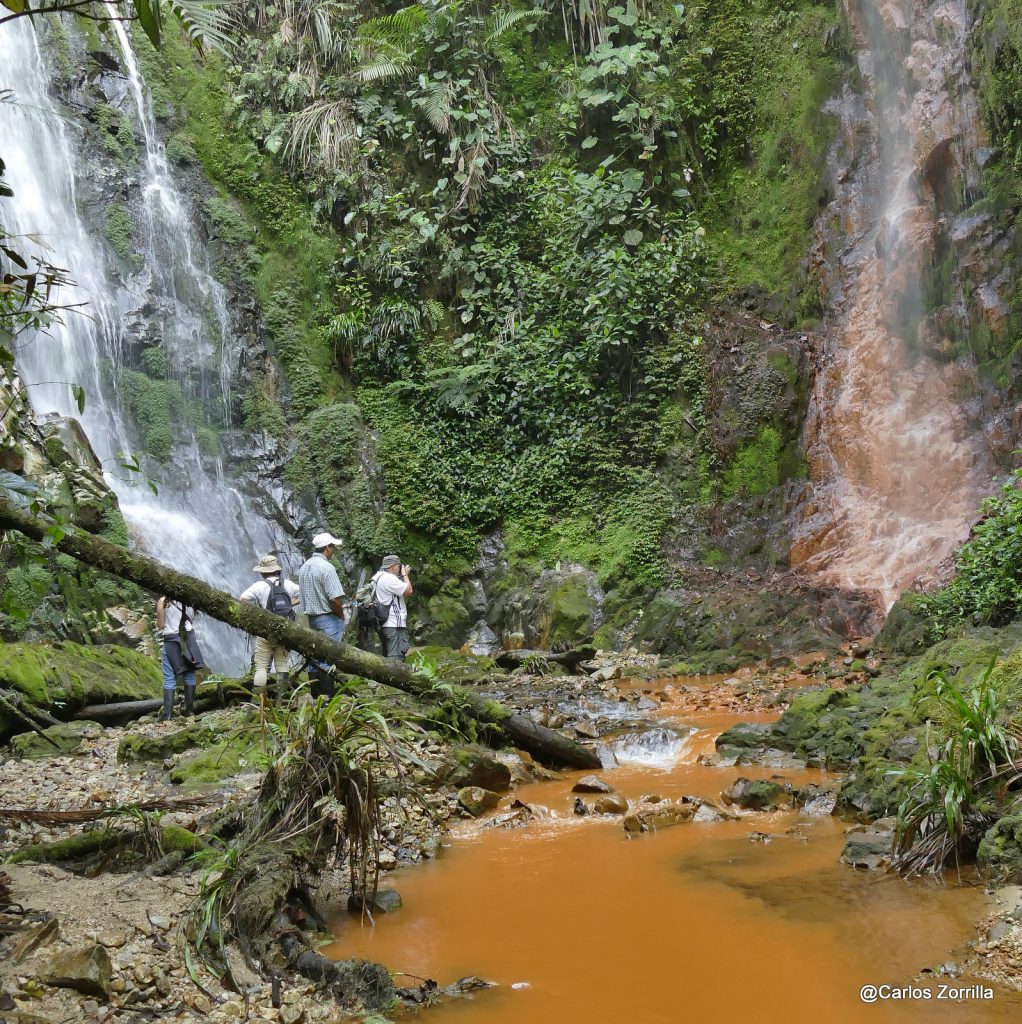Llurimagua case for endemic species looks set to be lost by the Ecuadorian Ministry of the Environment in significant blow to plans for mining in the area
A case for protecting endemic species at the planned Llurimagua mine site had another win last week when Carmen Jaramillo Cevallos, Judge of the Multicompetent Judicial Unit of the Cotacachi canton, issued her full judgment on the case.

The Constitutional Injunction was brought against the Ecuadorian Ministry of the Environment and the State Attorney General in August out of concerns that the rights of nature enshrined in Articles 71 and 73 of Ecuador’s Constitution of the Republic would be seriously impacted by mining activities within the Llurimagua concession in north-western Ecuador’s biodiverse cloud forests.
In a preliminary ruling released on September 24, the judge had ruled that the Ministry of the Environment had failed to protect endemic and critically endangered species on the Llurimagua mining concession, and gave the Ministry of the Environment 90 days to solve omissions and irregularities detailed by the Nation's Comptroller General in its March 2019 report.
If these are not remedied in the timeframe, environmental licenses on the concession will be revoked. Additionally, the court decreed that the process must be overseen and validated by the Municipal government, a University and the Public Defender's Office (Ombudsman).
“The measures [that must be complied with] include things that will be technically impossible to remedy, given that one of the most important irregularities was that the Ministry of the Environment approved the environmental license in 2014 without proper or sufficient baseline information – including not having a valid information from a meteorological station,” says Carlos Zorrilla, a founder of DECOIN and one of the petitioners in the case.
“They may install a meteorological station in the area now, but it takes years of data collecting to validate the information. It will be technically impossible for them to comply – especially with the civil society oversight,” Carlos Zorrilla says.
BHP and Gina Rinehart’s Ecuador subsidiary Hanrine have both been slated as likely buyers of the government-owned mining company’s share in the Llurimagua concession. The difficulty of meeting the measures in the required time will almost certainly mean the environmental permits for Llurimagua will be revoked, and makes any mining plans for the area increasingly unlikely.
The full ruling released on October 22 states that Nature has intrinsic rights that are completely independent to human or civil rights; that these rights were violated when the State did not control mining activities in the Llurimagua concessions; that the Ministry did not take into account adequate protection for species in danger of extinction; and that the judicial protection was also violated.
“The judgement states that while the destruction of a few trees or a couple of the last remaining frogs of a certain species may not be significant from the public interest perspective, it is certainly significant to those specific species,” Carlos Zorrilla says.
The ruling would also pave the way for other similar cases to halt mining activities in areas where endemic species are found. Ecuador’s high rate of endemism means this could apply to most of the country.
Australian mining companies BHP, Newcrest, SolGold, Fortescue and Hancock Prospecting, who all have subsidiaries in Ecuador, had hoped to take advantage of a pro-mining government eager for international investment, despite an overwhelming majority of Ecuadorians who do not want mining to take place in forested areas, on indigenous territory or near urban areas.
Another Rights of Nature case was heard at the Ecuadorian Constitutional Court on October 19 arguing that the country’s system of legally ‘Protected Forests’ should receive increased protection from mining based on the threats to fragile ecosystems and endangered species.
Again, a key argument in this case is that nature has intrinsic and inviolable rights, which Ecuador’s Constitution is unique in enshrining. A positive ruling would not only protect Reserva Los Cedros from mining, but could provide a precedent to safeguard all 186 Protected Forests in Ecuador, totalling some 2.4 million hectares (6 million acres).
Mining concessions currently cover over 800,000 hectares of Protected Forests in Ecuador, with Australian and Canadian mining companies holding the largest share.
“These Ecuador cases have implications internationally, with many several Indigenous and community groups in Australia currently looking to explore legislation to give rights or legal personhood to, and protect, the intrinsic value of rivers, waterways and other natural features,” says Liz Downes, a member of Rainforest Action Group, an advocacy and research organisation.
“Legislation based on legal personhood principles gave additional protection to Yarra River (Birrarung) in Victoria in 2017, by empowering its Wurundjeri Traditional Owners. Other rights of nature cases being explored include the Great Barrier Reef, the Fitzroy River and the Murray-Darling river system,” says Liz Downes.
Full media release here.